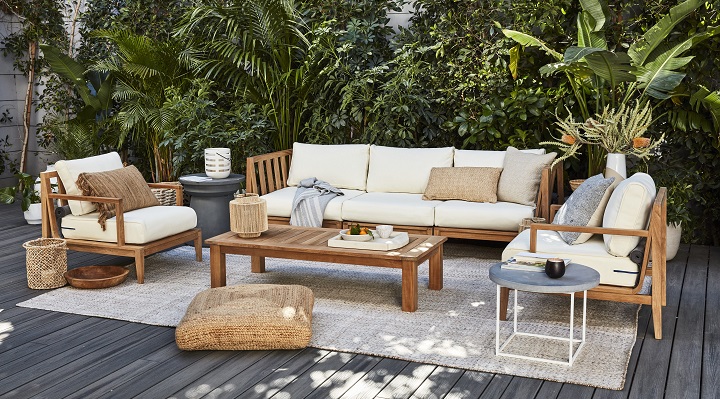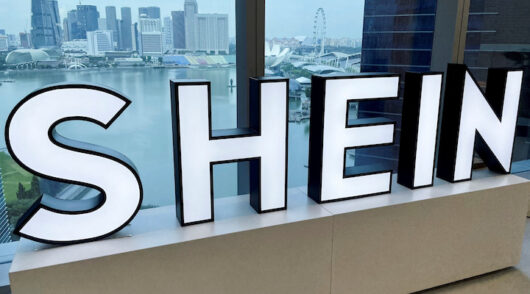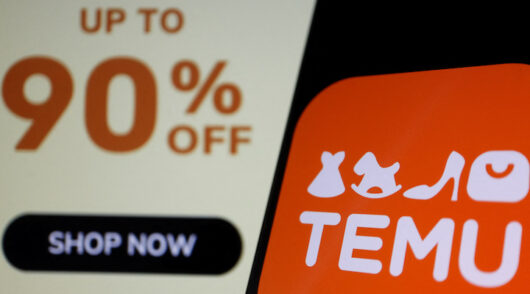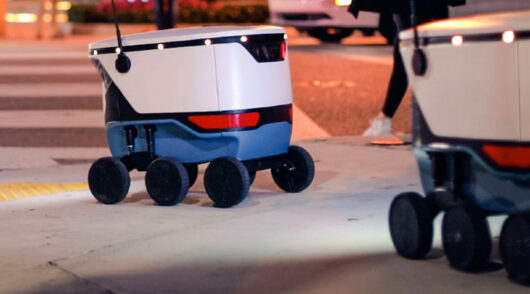Direct-to-consumer furniture company Outer aims to disrupt the outdoor furniture market with its cleverly designed sofas, chairs, and coffee tables that are made to stand up to the elements without adding to the world’s growing waste problem.
Founded in 2019 by entrepreneur Jiake Liu and designer Terry Lin, formerly of Pottery Barn, the Californian brand has enjoyed quick success in the US, recently closing a US$50 million ($69.0 million) Series B funding round.
Now, it is looking to expand overseas, starting with Australia, where it has appointed a local country manager and set up a warehouse to facilitate two-week shipping.
“Australia was a natural next step for us,” Liu, Outer’s CEO, told Inside Retail.
“Our products are built to withstand the climate in Australia, it’s counterseasonal to the US, and a lot of people live in single-family homes, so there were a lot of reasons to launch in Australia.”
Liu also noted that, like Americans, Australians spend the vast majority of their time indoors. In the US, people spend 93 per cent of their time indoors, and in Australia, they spend 90 per cent of their time indoors.
“Scientific studies prove that if you just spend a little bit of time outside, it changes your body chemistry, it literally makes you secrete hormones that make you healthier and happier,” he said. “That’s something that we want to provide to the Australian market as well.”
A cure for ‘wet butt syndrome’
Outer’s main point of difference is its patented solution for ‘wet butt syndrome’, a term Liu uses to refer to the experience of sitting on a piece of outdoor furniture, only to find that the seat cushion is sopping wet.
“Everybody can relate to sitting on some soggy cushions – it’s not the best feeling in the world,” Liu said.
To solve this problem, he and Lin came up with the concept of the Outer Shell, a piece of waterproof fabric that is integrated into the seat cushion, which can be pulled over the seat and back cushions when they’re not in use to protect them from moisture. When the furniture is in use, the Outer Shell can be rolled away, out of sight.
“There’s also a handle, so if there’s a huge rainstorm coming, you can pack up [all the cushions] and move them like suitcases, which is very efficient.”
Liu and Lin have also taken care to make their products sustainable. Because outdoor furniture is constantly exposed to the elements, it tends to deteriorate quickly, which is why many brands use synthetic materials, such as plastic. But this creates a problem when products reach the end of their life.
“They’re not eco-friendly, they’re not recyclable,” Liu said.
Instead, the co-founders spent over a year developing their own performance fabric for seat cushions and covers that is water-repellent, ultraviolet ray-resistant, stain-resistant, and mould and mildew-resistant, yet still 100 per cent recyclable.
For the furniture itself, they use aluminium, Forest Stewardship Council-certified teak and all-weather wicker made from recycled plastic bottles.
From my backyard, to yours
“Everything we do at Outer has a core sustainability focus. [It was] born out of the mission to take on one of the biggest challenges of our generation and the next generation,” Liu said.
“I’m a father, and my co-founder is as well, and we think about what our kids’ world will be like in the future.”
With this in mind, Outer doesn’t operate bricks-and-mortar retail stores, which Liu believes are inherently unsustainable: “People only visit on weekends, but in the meantime you have to keep the store running with the lights on all seven days,” he said.
Instead, the brand sells online and operates neighbourhood showrooms, where existing customers can host potential buyers at their homes to show them what the products look like in real backyard settings and answer any questions they might have.
In exchange, the hosts receive a 10 per cent discount on any future purchases, while potential buyers get an arguably better – more authentic and less pushy – shopping experience than they would in a typical outdoor furniture store.
“The inspiration came from Airbnb,” Liu explained. “I was an avid Airbnb user, both as the guest and a host, and I enjoyed it not because it’s a great alternative to staying at boring hotels, but because of the experience of meeting someone locally.”
Another benefit of this concept is its scalability. Outer has more than 1000 neighbourhood showrooms in the US, and three already in Australia.






